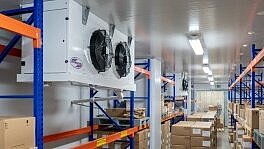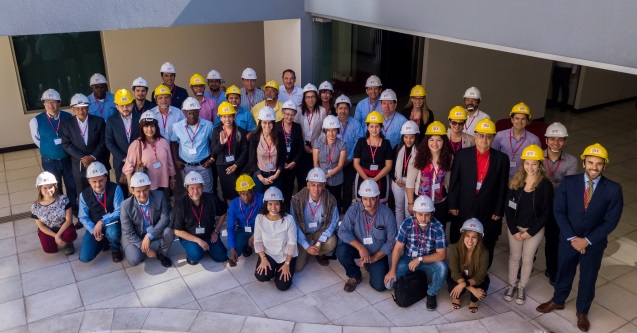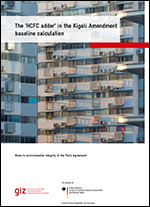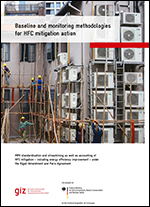Climate-friendlier cooling in Latin America and the Caribbean

Around 50 experts from 17 Latin American and Caribbean countries met in Costa Rica to exchange their experiences on the use of natural refrigerants as an energy-efficient and climate-friendly alternative.
Latin America and the Caribbean have one thing in common: the climate is hot. Cooling systems are vital here – and especially in the commercial sector – they have many uses such as the storage and transport of food and medicine.
At the same time, however, cooling systems are anything but climate-friendly. They often use refrigerants consisting of partially-fluorinated hydrocarbons (HFCs), which are up to 4000 times more harmful to the climate than carbon dioxide (CO2), or “partially-halogenated” chlorofluorocarbons (HCFCs), which contribute to the depletion of the ozone layer. With the Montreal Protocol of 1989 and the amendment of the Protocol agreed in Kigali in 2016, recent years have seen many countries in the world set themselves the target of reducing greenhouse gas emissions in the refrigerants sector. Instead of climate-damaging refrigerants, they want to switch to natural alternatives such as hydrocarbons, CO2 or ammonia.
Experts discuss the conversion to environmentally-friendly cooling systems
Around 50 ministry and industry representatives as well as technical consultants from the refrigeration and air-conditioning sector (RAC) from 17 Latin American and Caribbean countries took part in a technology roadshow in Costa Rica from 25 to 27 March, 2019, where they exchanged their experiences with the introduction of sustainable cooling systems and to learn about practical examples in the country. For example, the pharmaceutical company ROCHE uses the first two hydrocarbon (R290) air conditioning systems (chillers) installed in Latin and Central America.
 In the energy efficiency laboratory of the country’s largest energy supplier, the delegation learned how to put washing machines, refrigerators and now environmentally-friendly cooling systems through their paces and monitor their energy efficiency. This monitoring process is particularly important in Costa Rica – it is only a small country, but it has 12 climate zones and various microclimates and depending on whether an air conditioner is used in the capital San Jose, in a coastal town on the Pacific or in the dry north of the country, it is exposed to different climatic conditions.
In the energy efficiency laboratory of the country’s largest energy supplier, the delegation learned how to put washing machines, refrigerators and now environmentally-friendly cooling systems through their paces and monitor their energy efficiency. This monitoring process is particularly important in Costa Rica – it is only a small country, but it has 12 climate zones and various microclimates and depending on whether an air conditioner is used in the capital San Jose, in a coastal town on the Pacific or in the dry north of the country, it is exposed to different climatic conditions.
The regional network of the Green Cooling Initiative is officially initiated
The regional Green Cooling Initiative (GCI) network for Latin America and the Caribbean was officially launched on 28 March, 2019. An alliance of key stakeholders in the RAC sector, it brings together experts and decision makers who are involved in environmentally-friendly cooling technology and policies. Representatives of the national ozone units were offered a two-day workshop to improve their negotiating skills, to better implement the activities defined in the Montreal Protocol and above all to make their voices heard.

The roadshow was organised by the Environmental Quality Management Directorate of the National Ministry of the Environment with the support of the Deutsche Gesellschaft für Internationale Zusammenarbeit (GIZ) as part of the Green Cooling Initiative II project (commissioned by the German Federal Ministry for the Environment, Nature Conservation and Nuclear Safety (BMU)), the “Sustainable and climate-friendly reduction of ozone-depleting substances” project – SPODS (co-financed by the European Commission and the Federal Ministry for Economic Cooperation and Development (BMZ)) and the regional project “Renewable energies and energy efficiency in Central America”.
The link has been copied to the clipboard
Contact
IKI Office
Zukunft – Umwelt – Gesellschaft (ZUG) gGmbH
Stresemannstraße 69-71
10963 Berlin








![[Translate to English:]](/legacy/Bilder/2022/20220125_Climate-friendly_fish_coldstore_Kenya_Thumb.jpg)






